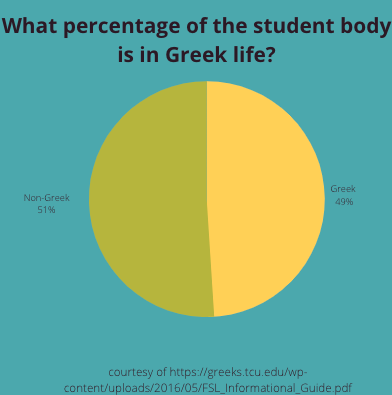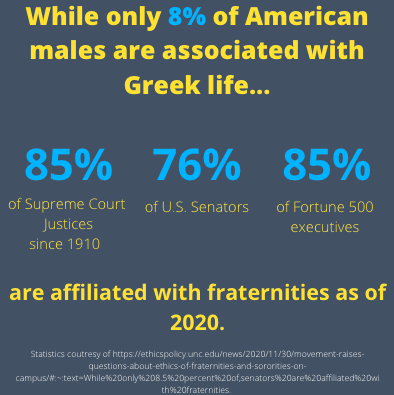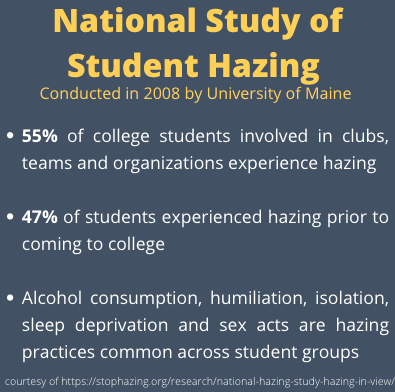Chancellor says TCU Greek Life isn't going anywhere even as Abolish Greek Life trends spread

Across the nation, the Abolish Greek Life movement has been growing. Started by a group of students at Vanderbilt University, Abolish Greek Life supports the notion of the complete dismantlement of sororities and fraternities due to their history of violence and elitism.
But TCU Chancellor Victor Boschini said that Greek life isn’t going anywhere as long as he is in charge.
“I want college to be a menu, and you can pick and choose what off that menu you want to avail yourself at TCU,” Boschini said. “I wouldn’t want it to be 100% Greek though, just like I wouldn’t want it to be 100% non-Greek.”
TCU Greek Life
Two weeks before the start of school, sorority members flock to campus to set up for recruitment. They arrive a week before the potential new members (PNMs) embark to find their new home for the next four years.

Caitlin Hawley (middle) during work week 2021. (Photo courtesy of Caitlin Hawley)
Caitlin Hawley (middle) during work week 2021. (Photo courtesy of Caitlin Hawley)
The week before is called work week, where every member is required to learn how to interact with PNMs and take photos to promote their sorority on social media.
Not only do they dress in a certain theme each day, but they also learn historical chants and movements used to recruit PNMs.
Although work week presents some challenges, Caitlin Hawley said it is all worth it come bid day, when new members receive their bid to join a sorority.
Recruitment is equally as stressful for PNMs. Upon registering, they’re instructed to make a slideshow, which includes a photo and answers to a few predetermined questions, to present themselves.
Since COVID-19, recruitment has looked different. Round one begins with a zoom informational session about each sorority. Based on the videos, PNMs can then pick their preferred houses.
Round two is on-campus and consists of in-person conversations with active members. They receive a dress code as with T-shirts given to them from TCU Panhellenic. Round three is similar, as it gives PNMs the opportunity to explore their desired house and talk to more active members.
Round four is a preference round, and, at this point, PNMs will most likely have two houses that they are deciding between. Then it is up to the chapters to make their final pledge class, or PC, and prepare for bid day.

Caitlin Hawley (second to right) on bid day 2020. (Photo courtesy of Caitlin Hawley)
Caitlin Hawley (second to right) on bid day 2020. (Photo courtesy of Caitlin Hawley)
The idea of "trusting the process" is heavily pushed upon PNMs because most come into recruitment with a set idea of which house they want before getting to know the active members, said Hawley.
This worked favorably in Hawley’s case for Sigma Kappa, though some students in her position may have dropped and tried again the following year to try to get the house they want.
The recruitment process for fraternities is very different from sororities. Will Ott, a sophomore member of Sigma Chi, said that his experience was more personal.
“An older Sig Chi was my frog camp leader and he invited me to meet some of his friends,” Ott said. “I ended up getting a bid after hanging with them a few times.”
The process of receiving a bid is intimidating, but members are thankful that TCU gives them the opportunity to be in Greek life.
The Abolish Greek Life movement
Over the past two years, the Abolish Greek Life movement has been gaining popularity and support as students have started to drop their fraternity or sorority— meaning they drop their commitment and relationship to their fraternity or sorority — in response to the greek organizations’ history of violence and elitism. At some schools, the fraternity and sorority membership numbers ran so low that the organizations were forced to dissolve.

The recent Black Lives Matter movement prompted some students to drop out of their organization because of racist chants from fraternities that have circled the internet.
As a result of these incidents, the National Panhellenic Conference (NPC) and the Interfraternity Council (IFC) reviewed their policies concerning racial discrimination.
The CEO of NPC Dani Weatherford said that the purpose of sororities is to empower women and not marginalize them.
“We have an obligation to recognize and correct the historic and systemic barriers that center the experiences of white and straight women over women of color, LGBTQ+ women and others from marginalized groups,” Weatherford said. “The sorority community is taking action to make our community more diverse, inclusive and culturally competent, while seeking to break down systemic barriers.”
Weatherford also said that in hopes of eliminating discrimination claims, the NPC has enacted unconscious bias training for all members and created leadership positions for diversity, equity and inclusion (DEI).
Though these are positive efforts to make sororities more racially inclusive, Greek life is inherently marginalized because of its membership fees.
To be a part of Greek life, members must pay dues each semester. These prices can range from $414 to $1,384 for both sororities and fraternities. This limits the amount of people that are eligible to join because of financial status.
Members of Greek life, especially fraternities, utilize the power of brotherhood while finding jobs which creates a “pathway” of elitism.

This cycle of financially well-off students joining an organization with other students in the same position has no end in sight, which is why the Abolish Greek Life supporters view Greek life as classist.
Hazing
Hazing is a driving factor of the Abolish Greek Life movement that has both students and parents against the organizations.
By publishing “True Gentlemen: The Broken Pledge of America’s Fraternities," journalist John Hechinger drove the president of the “deadliest frat," Sigma Alpha Epsilon (SAE), to abolish pledging.

In 2020, for the first time in 60 years, there were no hazing deaths reported. This was a direct result of the COVID-19 protocols colleges put in place for students.
The most recent hazing incident at TCU occurred in 2018 when Kappa Sigma member Andrew Walker committed suicide on campus after a warrant was put out for his arrest. Walker was involved with hazing a freshman by making him drink an excessive amount of vodka and eat expired food.
After doing a series of articles on hazing deaths for Bloomberg News, Hechinger decided to focus on the fraternity with the most hazing deaths, SAE, after a racist episode concerning the chapter at the University of Oklahoma went viral.
“I just thought that their story would make for a good spine of a narrative of fraternities,” Hechinger said. “I often look for stories that are a microcosm of larger problems, so the idea of focusing intensely on one fraternity was telling the story of all of Greek life.”
From his research, he found that at the heart of fraternities, there is a jarring conflict between their words and deeds.
“On the one hand, you had students who really did live in the professed ideals of fraternities and believe in philanthropy and friendship as being good students and leaders,” he said. “But it was unbelievably hard to disentangle it from these really dark episodes of hazing, racism and sexual assault, it's like, there was kind of something problematic in their DNA.”
The Abolish Greek Life movement has been successful in some schools, though when administration at Harvard attempted to pass a similar measure, there was tremendous student pushback.
The policy at Harvard, called the single-gendered social club rules, said that members could not be captains of sports teams or nominated for fellowships. This stemmed from a series of sexual assault allegations made against The Finals Club, an all-male organization that differs from fraternities because of its exclusivity.
“From these rules, sororities said ‘well what about us, we don’t have that problem,’” Hechinger said. “It’s just a challenge, so that’s why I think regulation in any kind of administrative action is probably the only way that anything will change.”
Hechinger also said that the complete dismantlement of Greek life is impossible unless the culture of universities changed all together.
“If we were creating universities from scratch, I don't think that we would create organizations that divided people by gender, race and class, which is what fraternities do,” Hechinger said. “But they’re so popular, and they’re so powerful, that they’re here to stay.”












